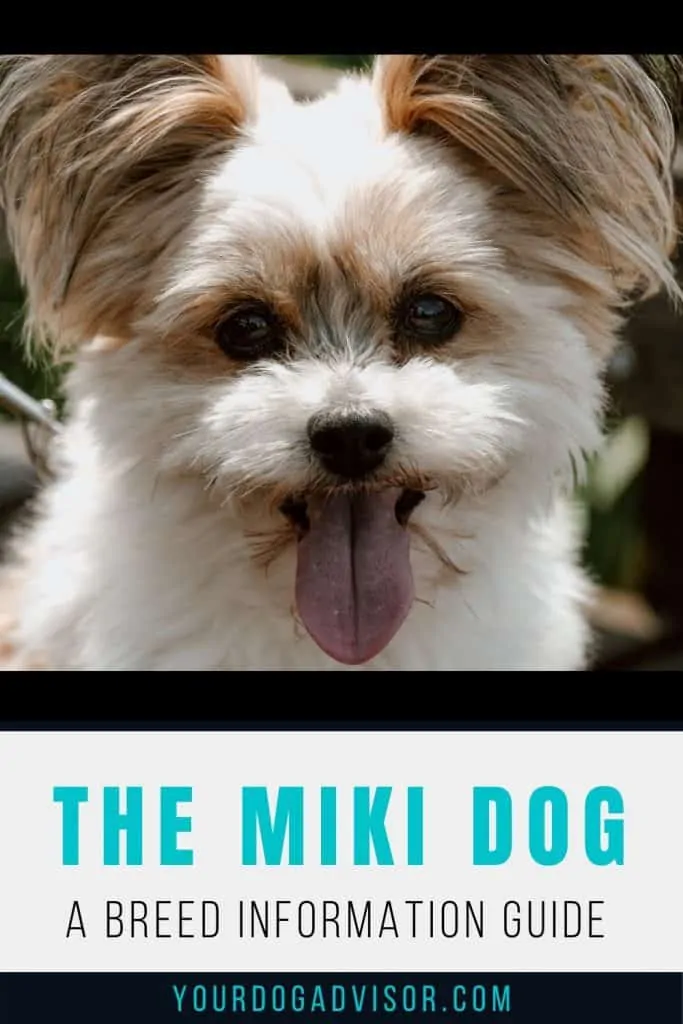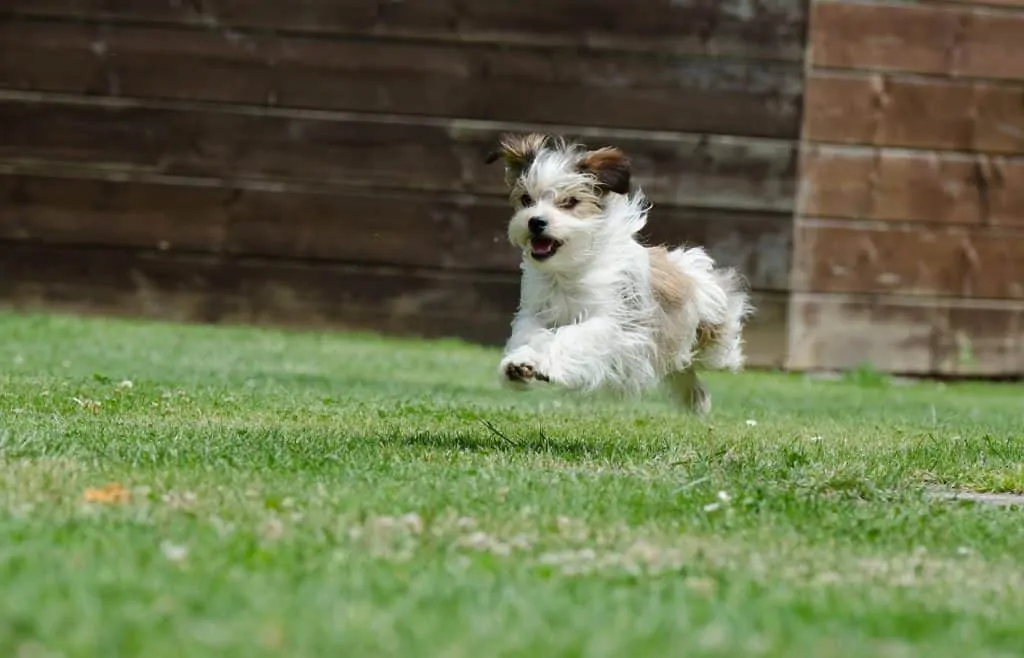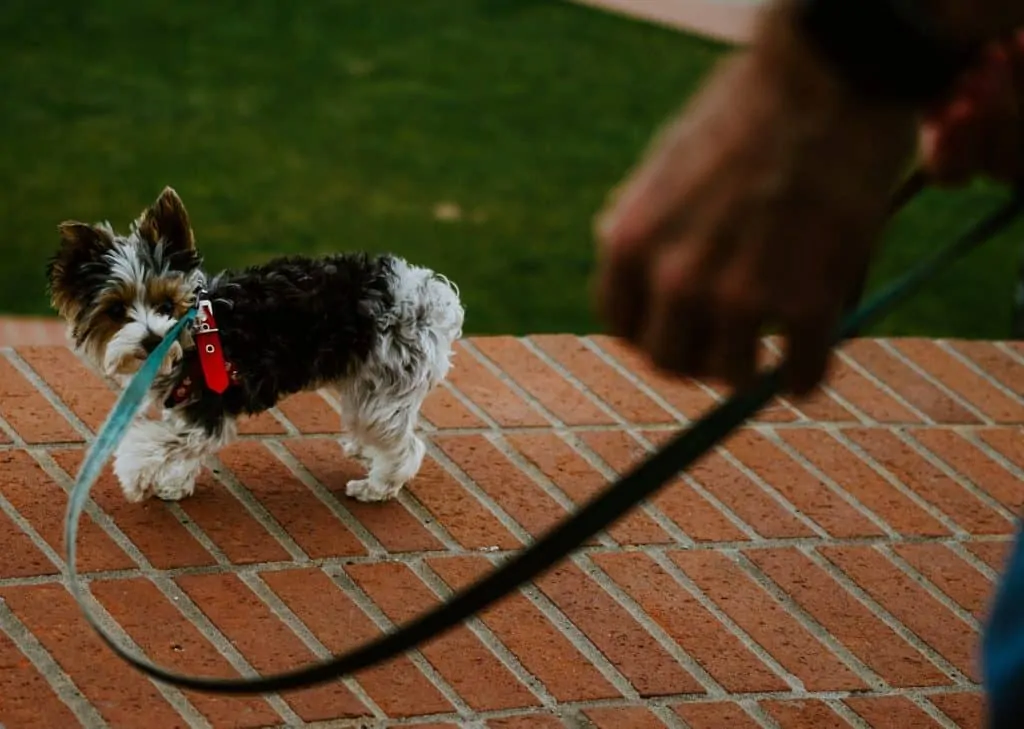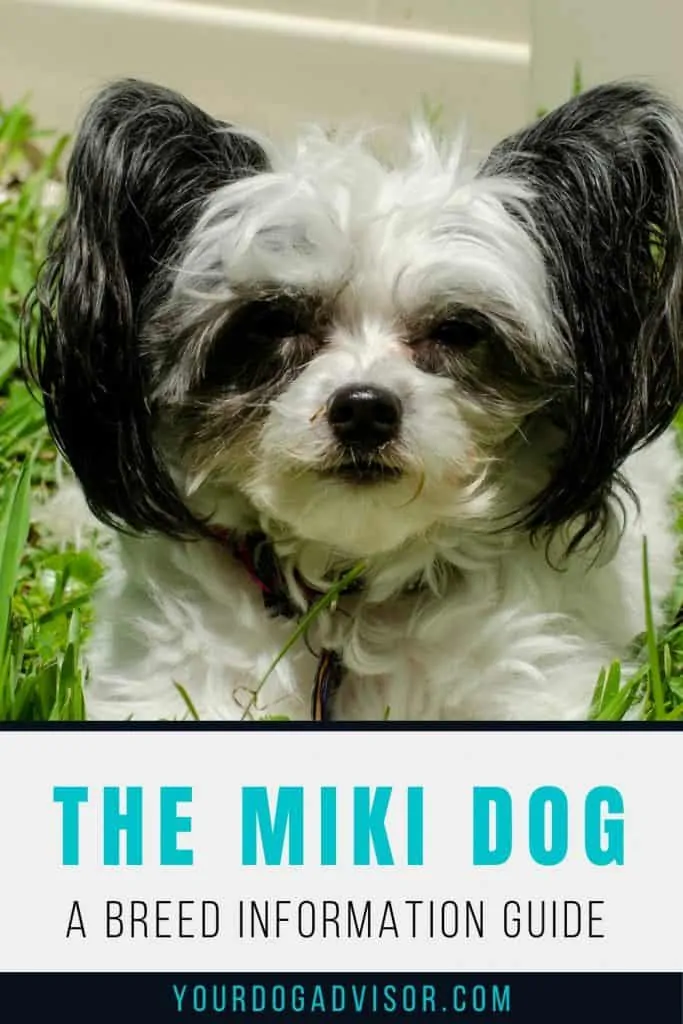Even the most keen dog enthusiast may have yet to hear about the Miki dog. Still considered a very new purebred in the canine kingdom, the Miki sports a combination of beauty, brains, and loyalty.
This darling dog is nothing short of the perfect companion, but would he make the right companion for you?
Since the Miki is still rather new, it’s important to take some time to learn about him before deciding to commit. If you’re considering introducing a Miki dog into your home or family, then you’ve come to the right place.
Let’s learn about the Miki dog!
Contents
The Miki Dog At A Glance
The Miki is a relatively new purebred.
Also written as Mi-Ki and pronounced as “Mee Kee”, the Miki dog is a bred companion dog who originated in the United States in the 1980s.
The Miki dog is distinguishable by its proportionate body, pointed or floppy “butterfly” ears, soft, silky coat, and big round eyes. Miki dogs come in multiple colors, and are just as adorable as they are affectionate.
The ideal Miki dog is sweet, gentle, playful and quiet. The breed makes an excellent companion for older families, singles, seniors and retirees, though he is not the ideal companion for young children as he can be easily injured if played with too roughly.
Where Does The Miki Dog Come From?
The Miki hails from Wisconsin, and is a combination of Shih Tzu, Papillon, Yorkie, and several other breeds.
A relatively newer purebred, the Miki came about in the US during the 1980s. He was created by an accredited Shih Tzu breeder by the name of Mikki Mackin in Wisconsin.
Attempting to create a small, hypoallergenic dog with a long coat and calm, gentle nature, Mikki Mackin went about breeding her own Shih Tzus with a combination of other beloved companion purebreds known for their sweet temperament.
Today, it is believed the Miki dog is a combination of a Shih Tzu, Yorkshire Terrier, Papillon Maltese, and Japanese Chin. We should note, however, that Ms. Mackin kept incomplete records so the exact combination of dogs that went into creating the Miki dog remain unclear.
And though the Miki is a breed who originated in the United States, he still has yet to be registered as a purebred by the American Kennel Club. That said, the Miki dog was recognized as a purebred in 1999 upon the establishment of the American Mi-Ki Registry.
Years later, the Miki was officially recognized by the United Kennel Club in January of 2016. Today, Miki dog enthusiasts continue their quest for the Miki to be recognized by the AKC, and until then they enjoy this beautiful, loving, and intelligent breed as an incomparable companion dog in the United States.
What Are The Miki Dog Temperament And Personality Traits Like?
Mikis are family oriented and become extremely bonded with their people.
Bred specifically as a tiny companion, the Miki dog is beloved for his sweet, gentle, and adoring nature. He is a sensitive little breed who is not overtly shy, but is calm and easy going.
As such, the MIki dog makes an excellent addition to those who live in apartments. He is quiet, trainable, and eager to please. This is a dog who can be prone to suffering from serious separation anxiety, however, considering his sole purpose is to be with his family. He bonds closely to his people, which can be problematic for those with a busy schedule or those who enjoy traveling if they cannot bring their Miki dog along.
Friendly and playful, the Miki dog can make a good companion for older, calmer children, but care must be taken to ensure the Miki dog is handled gently. Small and fragile, the Miki can be prone to serious injury if played with too roughly.
Due to his small size and sweet, quiet nature, many find that the Miki dog makes an ideal companion for seniors, retirees, and those who work from home.
He is a sweet lap dog who enjoys a laid back lifestyle, but will also appreciate an outing now and then and some outdoor playtime.
What Does A Miki Dog Look Like?
The Miki’s look can vary somewhat, as he comes in a multitude of colors and can have floppy or cropped ears.
There is no dog that looks quite like a Miki dog. That said, because this dog is so new and therefore relatively rare, many people won’t realize they are looking at a Miki dog when they see one.
Let’s take a look at the common characteristics of the Miki dog below.
Miki Dog Height: 7 – 9 Inches
Miki Dog Weight: Under 10 Pounds
Miki Dog Coat Color: Multiple colors including cream, white, red, silver, blue, apricot, brown, black, beige, fawn, mahogany, as well as a range of color combinations and patterns.
Coat Types: Long and silky
Hypoallergenic Coat: Yes
Overview of The Miki Dog:
The Miki dog, being a combination between several other small, toy breeds, can have quite a range of characteristics. One Miki dog may look different from another, though they all contain similar traits, as you saw above.
Some Miki dogs’ ears can be left floppy while others are cropped or erect. Their fur is long, silky and hypoallergenic, and the Miki dog’s eyes are round and set widely on the Miki’s face. Eye color can range from blue to brown, and the tail is long and curled over the Miki’s back.
Depending on the style of haircut your Miki dog has, he could very well maintain a puppy-like appearance throughout his lifetime.
What Are The Training Requirements For A Miki Dog?
The Miki is highly trainable, but training should be done gently using positive reinforcement.
Training and socialising your Miki dog at an early age is important to reduce problematic behaviors like barking, chewing, and bathroom accidents. Because the Miki dog is bred for companionship, he can be prone to serious anxiety and depression if left on his own for too long.
However, with proper training and socialization, you can reduce certain behavioral issues and increase confidence and therefore happiness in your Miki dog.
We should note that, due to his small size, the Miki dog can be difficult to house train. This is because his potty accidents may not be discovered until it is too late. For this reason, we suggest keeping a close eye on your Miki dog during potty training and consider having him or her weather a doggy diaper or lap band during training.
You might also consider investing in a puppy playpen, crate, or dog gate to keep your Miki dog in designated rooms to help better establish when and where to go to the bathroom.
Even if your Miki dog has accidents, it’s very important not to scold him or use punishments when training. This is a very sensitive breed who is eager to please and wants nothing more than to make you happy. The Miki dog will shut down if he feels you are not happy with him.
To get the most out of training your Miki dog, use positive reinforcement training techniques including treats and praise, and keep training sessions short, game-like and fun.
Along with training, your Miki dog should also be properly socialized at an early age. Socializing your Miki will help acclimate him to different situations and stimuli, and help him to grow up happy, healthy and well-rounded.
To properly socialize a Miki dog, introduce him to as many new people, places and experiences as possible. Try to ensure these experiences are positive for him and try not to force your Miki dog into a situation that is clearly stressful or frightening for him.
Instead, encourage him gently to explore his world using love, treats, praise and patience.
What Are The Exercise Requirements For A Miki Dog?
Mikis do not need vigorous exercise, but they will still require daily activities like brisk walks or playtime.
The Miki dog is a small, relaxed companion dog who doesn’t require too much exercise each and every day. That said, like all dogs, the Miki still needs to stay active. A short walk once a day through the neighborhood should suffice, but you can also exercise your Miki without walks inside your home.
Playing active games like fetch or tug of war with your Miki for about 30 minutes a day can also help to keep him healthy. He may also enjoy some outside playtime at dog parks with dogs around his same size.
Along with exercise, you should also work to keep your Miki dog mentally stimulated. The Miki is a clever little pooch who will appreciate using his mind, so you can work with him to learn fun new tricks. You might also consider providing your Miki with puzzle toys and things to do while you are away.
How Do You Groom A Miki Dog?
Miki dogs have silky, hypoallergenic coats that can be prone to mats and tangles.
The Miki dog has a long, silky coat that is considered hypoallergenic and non-shedding. That said, there is no such thing as a truly hypoallergenic dog, and all dogs do shed to some extent.
However, the Miki dog sheds less than many of his other canine counterparts and even produces less allergy inducing dandar, making him a wonderful companion for those who suffer from allergies.
Due to his long, silky coat, the Miki dog can be prone to matting. For those who choose to grow his hair long, grooming maintenance may be more intensive. A good brush a few times a week should help keep his coat and skin healthy, and bathing once every two weeks with a dog-safe shampoo and conditioner can keep his fur silky soft.
If you choose to keep your Miki dog’s coat cut short, grooming will be more low maintenance. Still, the Miki dog will need routine brushing and bathing, as well as nail trimmings to ensure his nails do not crack or split during play.
Your Miki dog should also have his ears checked and cleaned regularly to keep ear infections at bay, and his teeth should be brushed at least once a day with a dog-safe toothbrush and toothpaste to reduce chances of early tooth loss due to dental disease.
What Is the Average Lifespan Of A Miki Dog And Do They Have Any Serious Health Issues?
Miki dogs are relatively healthy and long-lived, though they can be prone to some of the same issues as most other small breed dogs.
Because he is a combination of a few different purebred dogs and due to very careful breeding standards, the Miki dog is a relatively healthy and long-lived breed.
Miki Lifespan: 13 – 15 Years
On average, a healthy Miki dog can live between 13 – 15 years, and sometimes even longer. And though he is relatively healthy, the Miki may still be prone to the following health issues common in toy dogs.
Miki Health Issues:
- Collapsed Trachea
- Patellar Luxation
- Respiratory Issues (Brachycephalic Airway Syndrome)
- And Dental Disease
You can help combat serious health issues in your Miki dog by following the below tips:
Proper Diet
The Miki dog will do best on a quality dog food that is specified for his age, weight and activity level. Stay away from dog foods that contain additives, fillers, by-products, corn, soy, wheat and dyes.
Instead, stick with dog foods that are rich in real animal protein, vitamins, minerals, carbohydrates, healthy fatty acids and water.
You also have the option of choosing wet dog food, dry dog food or raw dog food for your Miki. You can even make homemade dog food yourself. If you do choose to make homemade dog food, make sure you consult with your veterinarian to ensure you are providing your Miki dog with the proper nutrients he needs to thrive.
Routine Exercise
All dogs need routine exercise, as we mentioned above. Though he is small, it’s very important to maintain daily activities and mental stimulation. Keeping your Miki active and his mind happy will help not only help to prolong his life, but also help to increase the quality of it.
Proper Grooming Practices
Grooming your dog may seem tedious, but it’s actually an excellent opportunity for you to bond with your Miki dog. Most importantly, it helps you get a hands-on look at your dog’s body to better keep an eye on any potential issues.
Routine Vet Visits
Last but not least, try and keep up with routine vet visits. Miki dogs under 7 years old should see their veterinarian at least once a year for routine wellness checks. Dogs older than 7 years old do best going in once every six months, according to most veterinarians.
Routine vet visits can help catch potential health issues early on before they become too serious, thus saving you money and heartache in the long run.
What Are Some Pros And Cons Of Owning A Miki Dog?
Miki dogs become very attached to their owners and can be prone to suffering from serious separation anxiety.
While the Miki dog may seem like the perfect dog for you, it’s wise to consider the potential pros and cons that go along with owning this type of breed.
Take a look:
Pros To Owning A Miki Dog:
- The Miki is an excellent apartment dog
- Miki dogs are relatively healthy and long-lived
- They are quiet and sweet-natured
- Miki dogs get along well with children and other pets
- They enjoy being with their family and become tightly bonded
Cons To Owning A Miki Dog:
- The Miki can be prone to serious separation anxiety
- This is not the ideal dog for those with busy schedules
- Miki dogs can be difficult to house train
- The Miki dog is not the ideal dog for small children
- Due to his small size, the Miki dog can be prone to serious injury
What Is The Ideal Home Type For A Miki Dog?
Mikis do well in small spaces and are adaptable to many different home environments.
Though the Miki dog is a friendly, gentle companion who gets along well with most everyone, he is not best suited for families with young children or larger dogs. The Miki is a small dog who can be prone to serious injury if he is handled or played with too roughly.
For this reason, most people find that the Miki dog is best suited for families with older children, adults, couples, singles, seniors and retirees.
Because the Miki dog is small, he is an excellent traveling companion for those who enjoy taking road trips. He also makes an ideal dog for small space living, and for those who live a more laid back lifestyle.
Choosing A Miki Puppy Or Rescue Dog – Tips On Finding The Healthiest Miki Dog Possible
When choosing your Miki dog puppy, make sure you go through a reputable, certified source.
Raising a healthy and happy Miki dog begins at the source. Make sure you get your Miki dog from a reputable breeder or shelter, and avoid cutting corners in search of a Miki dog at a bargain price.
On average, a Miki puppy costs between $600 and $2,200. This price can vary depending on the breeder and the quality of your Miki dog’s parents. When going through a breeder, make sure to ask plenty of questions.
We further suggest you avoid uncertified sellers or backyard breeders who cannot provide you with health certificates proving their puppies have been screened and cleared of any serious health issues.
You might also consider going through a rescue, though it can be more difficult to find a Miki dog through a shelter than some other purebred dogs. This is likely because this breed is so new. That said, with patience and research you may be able to find a rescue that specializes in this breed and adopt the Miki dog of your dreams.
The Top 5 Products Every Miki Dog Owner Needs
A quality dog food can help reduce skin issues and increase the overall health of your Miki Dog. (https://pixabay.com/photos/food-bowl-fressnapf-dog-food-281978/)
Are you considering getting a Miki dog? Congratulations!
If you’ve decided that a Miki dog is right for you, then there are some products you’ll likely be interested in that can help you prepare. For your convenience, we have listed some of our favorite products available online for Miki dogs and their human parents.
Puppy Playpen
No products found.
The Miki dog can be somewhat difficult to house train because of his smaller size. For this reason, investing in a puppy playpen during training can help you train your Miki and keep accidents to a minimum.
The above puppy playpen by New World Pet Products is a foldable playpen that is easy to assemble and simple to store when not in use. It provides a safe place for your Miki to play as well, especially during puppyhood when curiosity can get your Miki into problematic situations.
Voyager Step-In Dog Harness
No products found.
Smaller dogs like the Miki dog can be prone to tracheal collapse if walked solely on a leash and collar. When out and about with small dogs, it’s important to use a step-in dog harness for that does not put pressure on the throat or trachea.
We like the above dog harness by Voyager because it is made of comfortable material, is adjustable, and clips snuggly to keep your Miki dog safe during walks. The harness also comes in a number of different colors and shades, and you can order it in x-small all the way up to large.
BV Dog Grooming Brush
No products found.
A grooming brush is an important tool for any pet parent to have, and it is especially important for longer coated breeds like the Miki dog. The above brush is a two-sided grooming brush that includes a soft-bristled side for gentle combing and a long-bristled side for dematting.
This brush can help remove any loose hair and gently combs through mats and tangles. However, keep in mind that it is best not to brush your Miki dog when his hair is wet, as this could cause damage to his silky coat.
Dog Nail Clippers
No products found.
Many people are forgoing the groomers in favor of trimming their dog’s nails themselves, and you can do this too. Trimming your Miki dog’s nails is easier than you might think, especially if you do it using treats and praise, and begin trimming his nails while he is young.
The above nail trimmer is a basic trimmer that includes a safety guard to ensure you do not trim your dog’s nails too short. The trimmer is made of stainless steel and includes a safety lock for worry-free storage.
EZDOG Toothbrush Kit
No products found.
Last, we have a tooth brushing kit for dogs by EZDOG. Dental care is imperative when it comes to your Miki dog, especially seeing as smaller breeds can be more prone to dental disease and early tooth loss than larger breeds.
The above tooth brushing kit includes a dual-sided toothbrush and a dog-safe toothpaste to help manage tartar and plaque buildup. This toothbrush and toothpaste kit can also help to promote fresh breath, which is always a plus.
And that’s it!
So, what do you think about the adorable and unique Miki dog? We would love to hear from you. Leave us your thoughts about the Miki dog in the comment section below.
Thanks for reading!


Jen Jones is a professional dog trainer and behavior specialist with more than 25 years of experience. As the founder of ‘Your Dog Advisor’ and the ‘Canine Connection’ rehabilitation center, she applies a holistic, empathetic approach, aiming to address root causes rather than merely treating symptoms.
Well known for her intuitive and compassionate approach, Jen adopts scientifically-proven, reward-based methods, encouraging positive reinforcement over punishment. Jen specializes in obedience training, behavior modification, and puppy socialization. Her innovative methods, particularly in addressing anxiety and aggression issues, have been widely recognized. Jen has worked with many of the world’s leading dog behaviorists and in her free time volunteers with local animal shelters and rescue groups.











